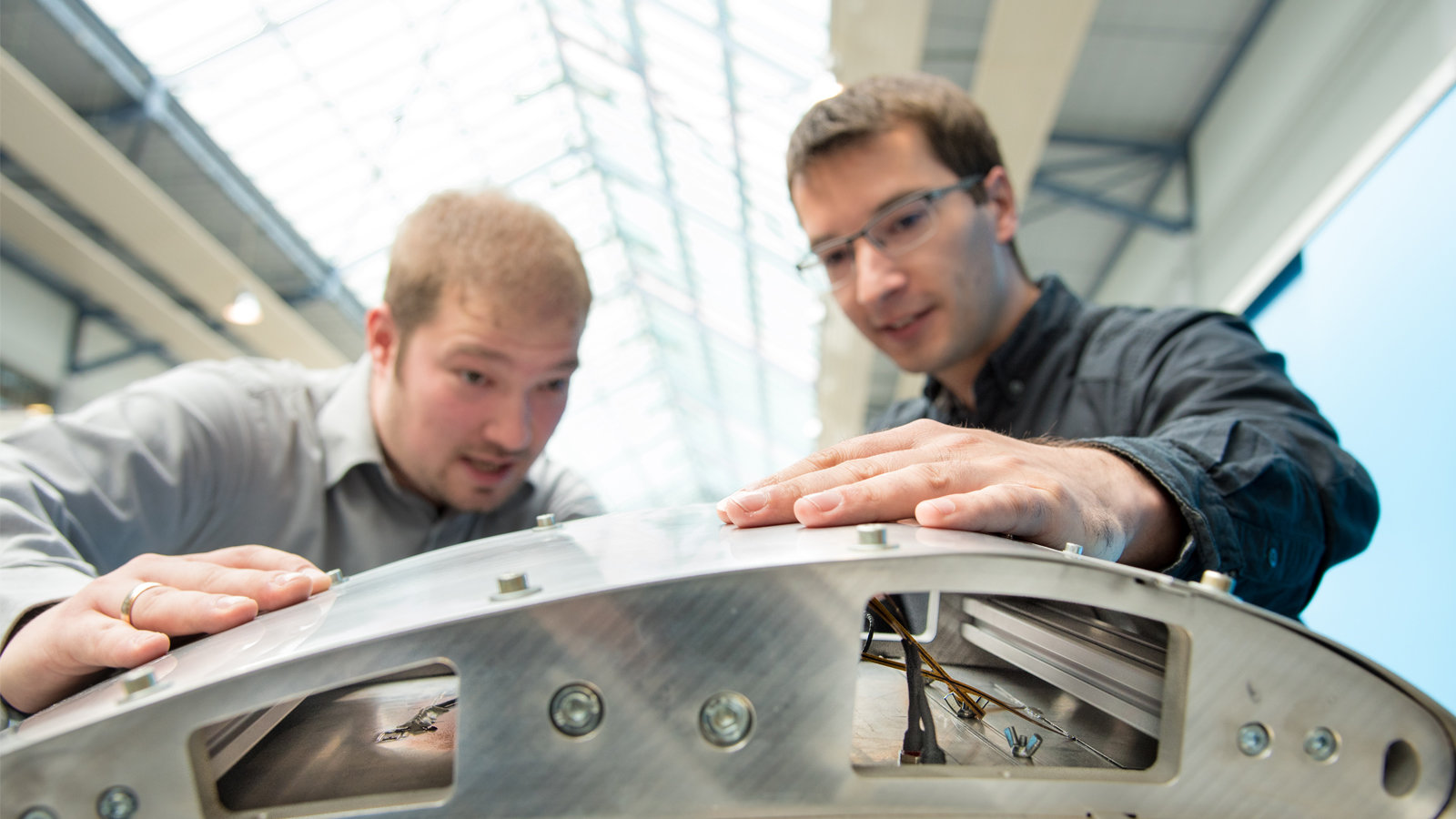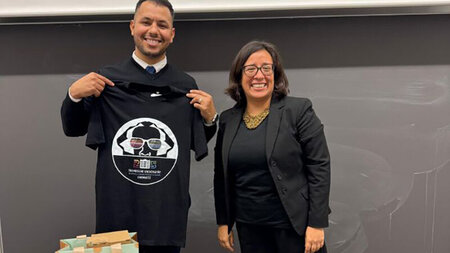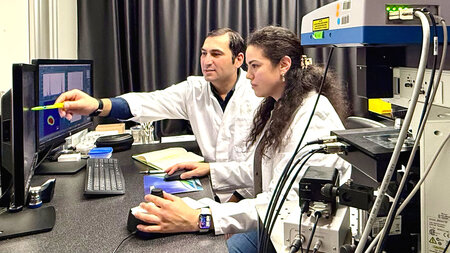Collaborative Research Centre of Chemnitz University of Technology as co-organizer of conference
Collaborative Research Centre at SMART 2017 “ECCOMAS Thematic Conference on Smart Structures and Materials” from June 5-8 in Madrid
-

The airplane wing demonstrator is the object of investigation of Benedikt Müller (left) and Dr. Matthias Nestler. The scientists conduct research in health monitoring through integrated piezo modules. Photo: Jonas Kimme
Developing intelligent systems is one of the most relevant topics at SMART 2017, a conference to be held for the 8th time in Madrid. Dr. Thomas Mäder, managing director of the Collaborative Research Centre/TR 39 PT-PIESA, a cooperation of TU Chemnitz, TU Dresden, FAU Erlangen and other research institutions in Saxony and Bavaria, elucidates the reasons. “Smart systems are able to offer a great variety of options for reducing emissions and making components more reliable. In mechanical engineering as well as in the automobile and aeronautics industries this is becoming increasingly important in the future”.
The Collaborative Research Centre mainly focuses on developing feasible production technologies for the future. Its three process chains for piezo element integration are represented by its own contributions at the conference. The aim of the working group “Forming” is to produce intelligent semi-finished products with an integrated sensor and actuator functionality and its forming. A promising application area is detecting distances for automobiles. “Integrated sensors and actuators – so called piezo modules – provide the possibility of detecting distances precisely. A typical application could be the ringing out of a warning signal if one opens a car door and the door approaches too close to the neighbour´s car”, as Thomas Mäder explains.
The main scientific focus of the working group “Fibre Composites” are active structural components consisting of fibre-reinforced composites, which can be manufactured in series. These components of applicable e.g. in rotor blades of wind turbines or automotive parts. By the use of integrated sensor-actuator-systems the identification of mass changes, unfavorable vibrations or malfunctions becomes possible at an early stage and can be remedied by appropriate measures.
The working group “Cast” is concerned with the integration of piezoceramic modules in high pressure die-cast aluminium parts. Integrated modules are advantageous in relation to glued components since they are not affected by environmental impact such as humidity or mechanical use. Functionality remains the same during the period of use. Numerous applications in the automobile industry and aeronautics are conceivable.
One of seven contributions of CRC/TR 39 PT-PIESA will refer to the use of piezo modules for icing detecting on aircraft wings. “The icing which can arise at aircraft wings means a substantial risk for safety. Due to the ice layer a modified geometry of the wing can occur. This leads to an alteration of characteristics and thus aerodynamic boost”, explains Mäder. “Currently we are researching the identification of icing by intelligent modules and ways to support de-icing”.
Further information about the Collaborative Research Centre/TR 39 PT-PIESA is available under www.pt-piesa.tu-chemnitz.de and at the website of SMART 2017 http://congress.cimne.com/smart2017
Matthias Fejes
02.06.2017




